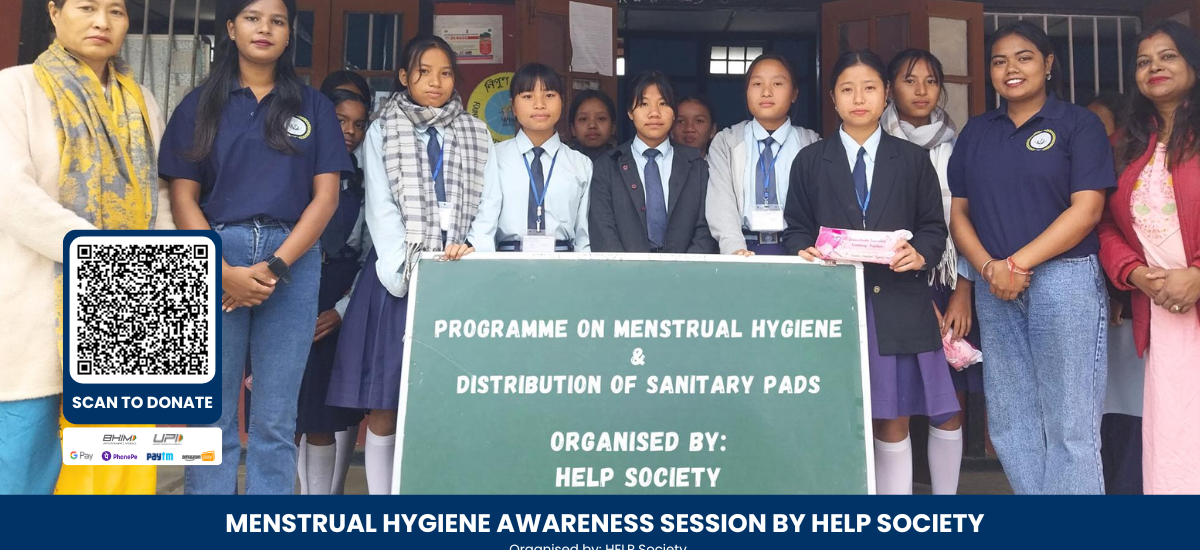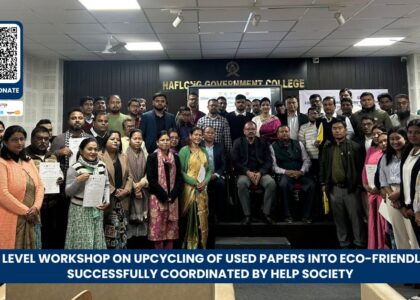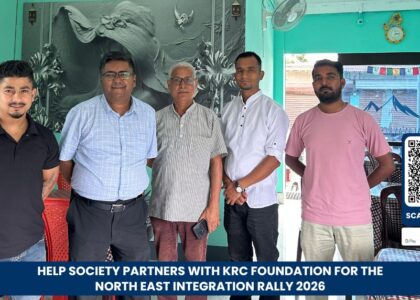21.12.2024 || Menstrual hygiene is an essential aspect of women’s health, yet it remains a topic clouded by stigma and misinformation. In a commendable effort to address these issues, Team HELP Society Haflong organized an Awareness Session on Menstrual Hygiene at Hosanna Orphan Home, Muohloi, Haflong, and GC Langthasa High School. This initiative educated young girls about proper menstrual health practices and took practical steps to improve access to hygiene products and support their well-being. As part of the program, over 500+ sanitary pads were distributed to ensure better menstrual health for all participants.
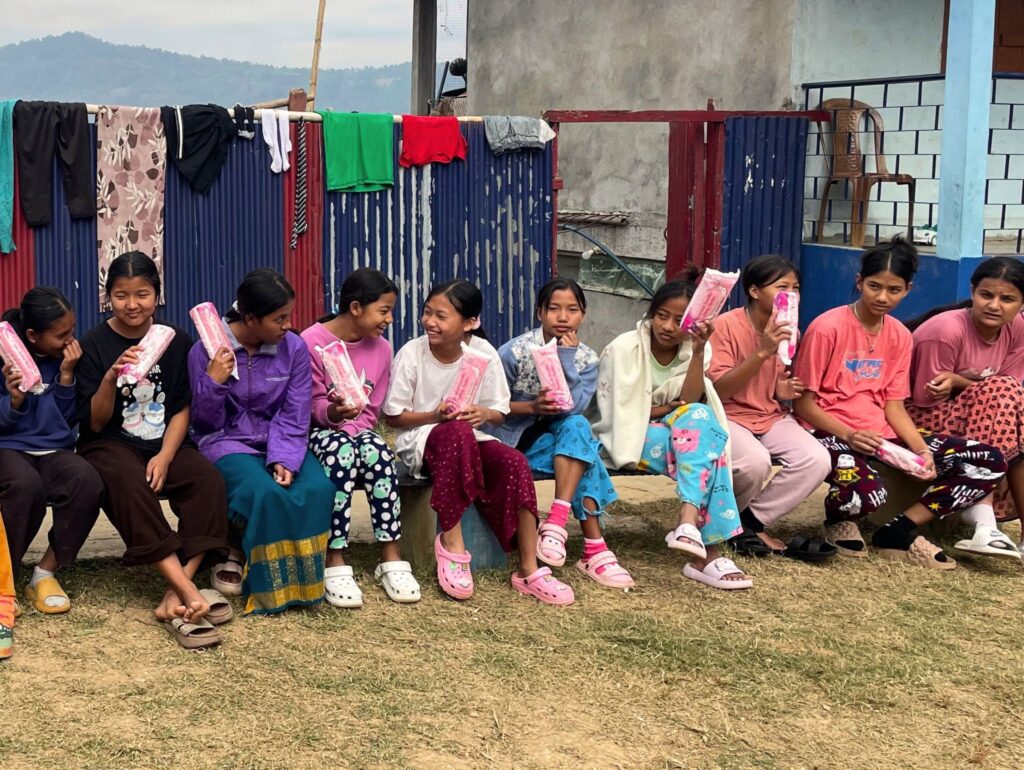
Why Menstrual Hygiene Matters
For millions of women and girls, menstruation is a natural process that should not hinder their daily lives. Yet, due to limited awareness and resources, many face unnecessary challenges that affect their health, education, and dignity. Organizations like HELP Society empower communities to overcome these barriers by promoting menstrual hygiene management.
The Program’s Objective
The Awareness Session on Menstrual Hygiene had several key goals:
- Education: Inform participants about menstrual health and debunk common myths and misconceptions.
- Support: Provide tools and guidance for managing menstruation with confidence and safety.
- Accessibility: Distribute sanitary napkins to ensure participants have the resources they need for a healthy menstrual cycle.
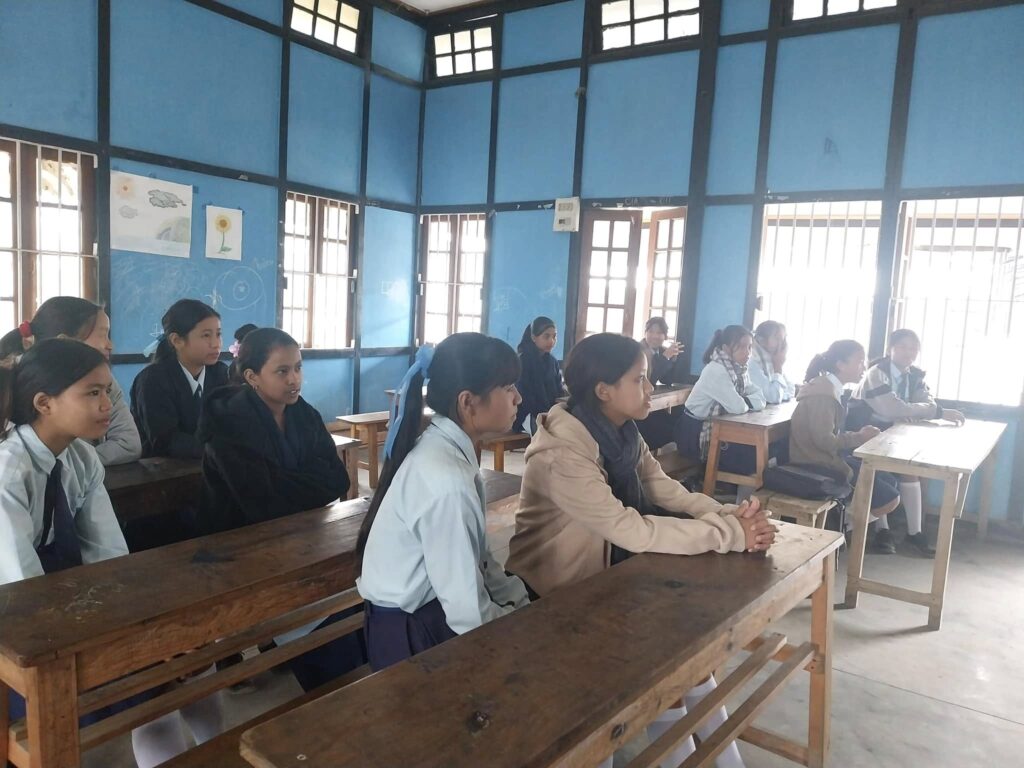
Key Highlights of the Session
1. Informative Discussions
The session kicked off with a detailed discussion on the importance of menstrual hygiene. Participants learned about:
- The biology of menstruation and why it is a normal, healthy process.
- The consequences of poor menstrual hygiene, include infections and other health risks.
- How to use and dispose of sanitary products correctly to maintain personal and environmental cleanliness.
Trainers used simple language and real-life examples to ensure the concepts were easy to understand, especially for younger participants.
2. Tackling Stigma and Myths
One of the most crucial aspects of the session was addressing the cultural taboos and misconceptions surrounding menstruation. Many young girls harbor shame and confusion due to societal stigma. The session encouraged participants to view menstruation as a natural part of life and created an open forum for questions and discussions.
3. Distribution of Hygiene Kits
In a bid to promote accessibility, the HELP Society distributed over 500+ sanitary pads to participants. This thoughtful gesture aimed to address the lack of resources many girls and women face, ensuring they can maintain hygiene and comfort during their cycles.
4. Building Confidence
Workshops like these empower participants to take charge of their health, breaking the silence and equipping them with the confidence to discuss menstrual hygiene openly with their families, friends, and communities.
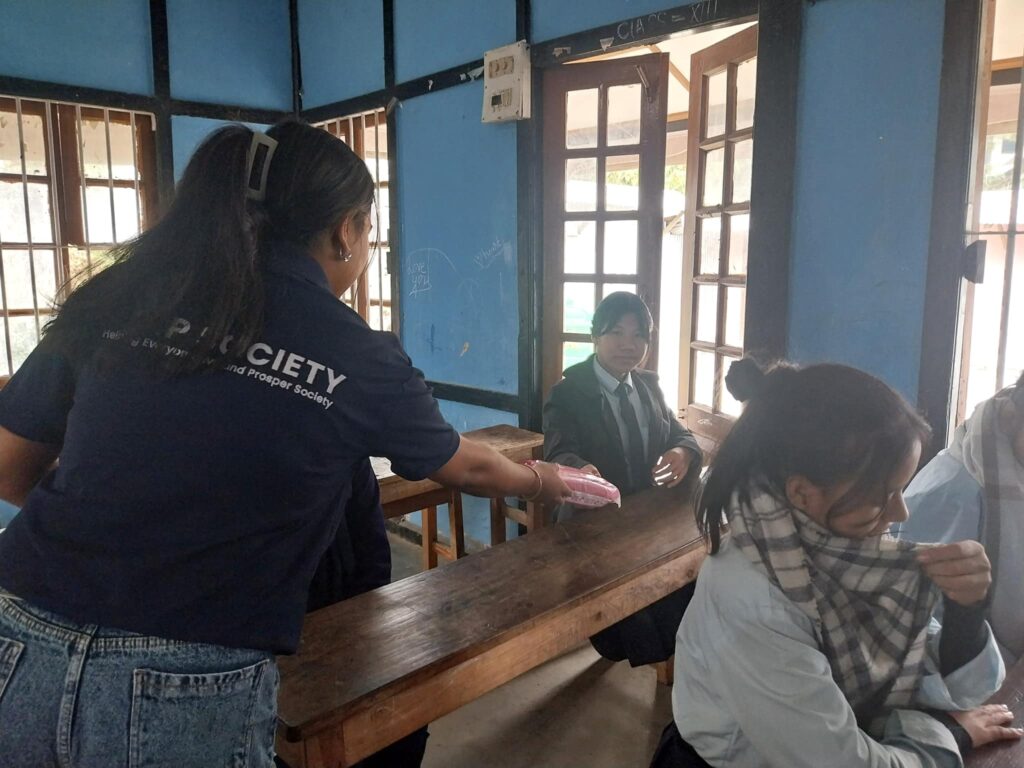
The Role of Partnerships in Success
This initiative would not have been possible without the generous support of Jan Aushadhi Kendra Guwahati, whose contributions enabled the distribution of sanitary pads and other resources. Such partnerships highlight the power of collaboration in addressing critical social issues.
Challenges Addressed by the Initiative
1. Lack of Awareness
Many young girls are uninformed about menstruation until they experience it for the first time, leading to fear and confusion. Programs like these ensure they are prepared and knowledgeable.
2. Resource Scarcity
In underprivileged areas, access to sanitary products is limited. By providing these essential items, the initiative ensures no girl is forced to compromise on hygiene.
3. Breaking the Cycle of Stigma
Societal stigma often prevents open conversations about menstruation, perpetuating misinformation. By normalizing discussions, HELP Society is paving the way for a more inclusive and understanding community.
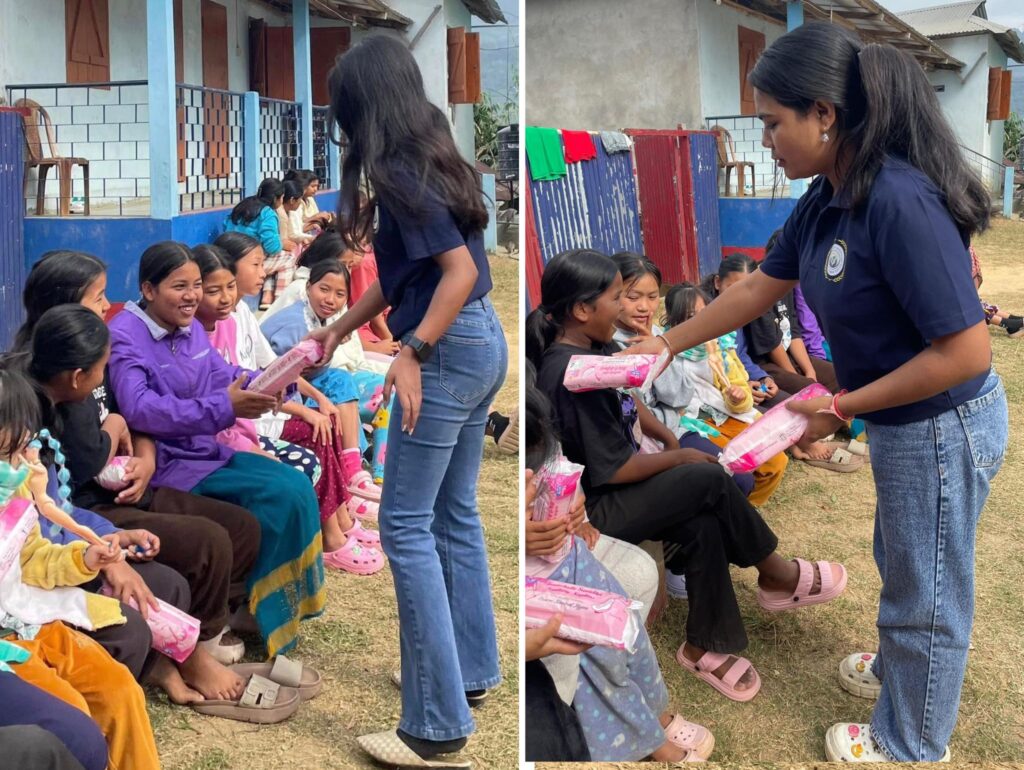
Long-Term Impact of the Initiative
Empowering Women and Girls
Education and access to resources empower participants to take control of their health, which in turn boosts their confidence and participation in school, work, and society.
Promoting Community Awareness
When one girl or woman learns about menstrual health, she can pass this knowledge to others in her community, creating a ripple effect that amplifies the impact of such initiatives.
Fostering Gender Equality
Addressing menstrual hygiene is a step toward gender equality, ensuring that menstruation does not become a barrier to education, work, or social inclusion.
What’s Next?
Team HELP Society is committed to continuing its work in menstrual health awareness and support. By organizing more sessions in schools, orphanages, and underserved communities, they aim to reach even more women and girls.
How You Can Help
Want to make a difference? Here are some ways you can contribute:
- Donate: Support initiatives like these by donating sanitary products or funds.
- Spread Awareness: Share information about menstrual health and debunk myths in your community.
- Volunteer: Join organizations like HELP Society to engage with communities and create change directly.
Conclusion
The Awareness Session on Menstrual Hygiene conducted by the HELP Society at Hosanna Orphan Home and GC Langthasa High School is a testament to the power of education and community support. By addressing the stigma around menstruation, distributing over 500+ sanitary pads, and providing tangible resources, the initiative has impacted the lives of many women and girls.
Please donate to our cause: Click here

